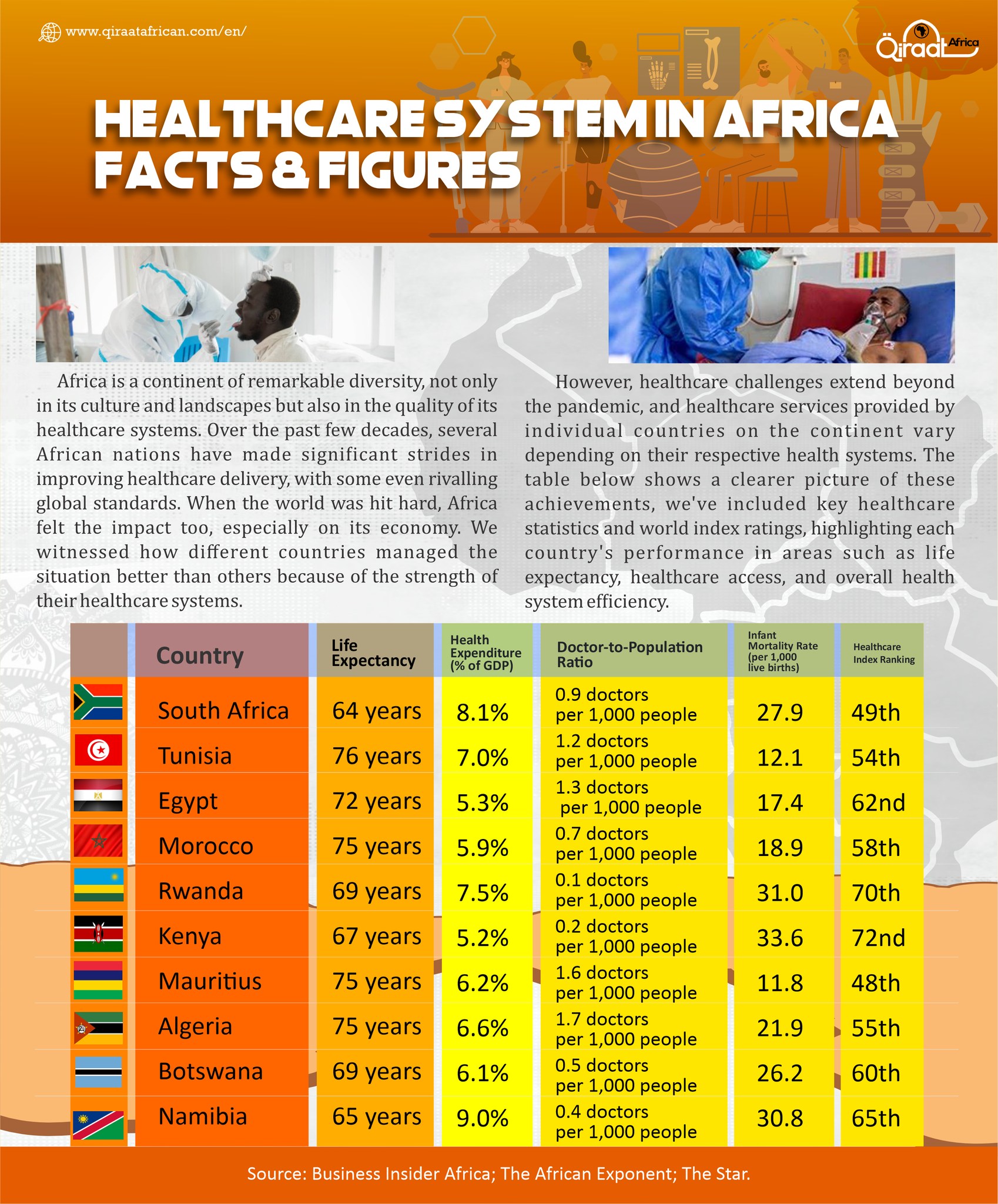Africa is a continent of remarkable diversity, not only in its culture and landscapes but also in the quality of its healthcare systems. Over the past few decades, several African nations have made significant strides in improving healthcare delivery, with some even rivaling global standards. When the world was hit hard, Africa felt the impact too, especially on its economy. We witnessed how different countries managed the situation better than others because of the strength of their healthcare systems.

However, healthcare challenges extend beyond the pandemic, and healthcare services provided by individual countries on the continent vary depending on their respective health systems.
The table below shows a clearer picture of these achievements. We’ve included key healthcare statistics and world index ratings, highlighting each country’s performance in areas such as life expectancy, healthcare access, and overall health system efficiency.
| Country | Life Expectancy | Health Expenditure (% of GDP) | Doctor-to-Population Ratio | Infant Mortality Rate (per 1,000 live births) | Healthcare Index Ranking |
| South Africa | 64 years | 8.1% | 0.9 doctors per 1,000 people | 27.9 | 49th |
| Tunisia | 76 years | 7.0% | 1.2 doctors per 1,000 people | 12.1 | 54th |
| Egypt | 72 years | 5.3% | 1.3 doctors per 1,000 people | 17.4 | 62nd |
| Morocco | 75 years | 5.9% | 0.7 doctors per 1,000 people | 18.9 | 58th |
| Rwanda | 69 years | 7.5% | 0.1 doctors per 1,000 people | 31.0 | 70th |
| Kenya | 67 years | 5.2% | 0.2 doctors per 1,000 people | 33.6 | 72nd |
| Mauritius | 75 years | 6.2% | 1.6 doctors per 1,000 people | 11.8 | 48th |
| Algeria | 75 years | 6.6% | 1.7 doctors per 1,000 people | 21.9 | 55th |
| Botswana | 69 years | 6.1% | 0.5 doctors per 1,000 people | 26.2 | 60th |
| Namibia | 65 years | 9.0% | 0.4 doctors per 1,000 people | 30.8 | 65th |
ـــــــــــــــــ
**Source: Business Insider Africa, the African Exponent, and the Star.


























































